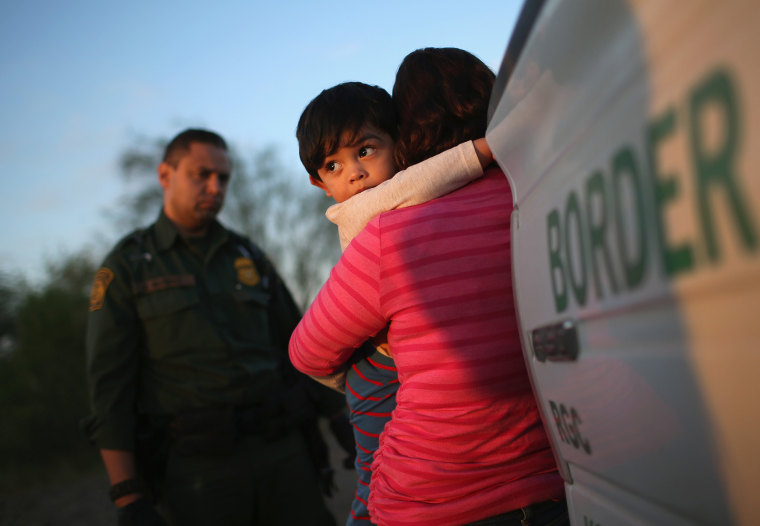The Supreme Court will continue to meet behind closed doors to consider hearing one of the biggest immigration cases of its time -- President Obama’s executive actions offering deportation protection to millions of undocumented immigrants.
The justices did not take action on the case Friday. Final word is expected early next week. It would ultimately be a death blow to the executive actions if the Supreme Court does not take up the case. But should the justices agree to hear oral arguments in the spring, it will be the best and final chance for Obama to see his immigration legacy realized before he leaves office.
Caught in the balance are nearly 5 million undocumented immigrants who have been waiting for more than a year to seek temporary legal status in the U.S. And the political implications would be just as great. A Supreme Court decision would settle the matter by late June, which is likely to stoke a contentious debate over immigration just ahead of the 2016 presidential conventions.
RELATED: The Rubio-Cruz immigration war heats up
It has been a long road to where we’re at now. Obama unveiled the series of actions during a prime-time address to the American public back in November 2014. The plan was to build on an existing program called DACA, which benefits undocumented immigrants brought into the U.S. as kids. The program lets these so-called DREAMers remain in the U.S. for two-year stints, apply for work and not have to worry about being deported.
The new rounds of executive actions were to expand the pool of DREAMers eligible and raise the legal status time-period to three years. Crucially, a separate program known as DAPA was to be implemented, designed to offer the same types of benefits to the undocumented parents of U.S. citizens or legal permanent residents.
Instead, the executive measures have been tied up in the courts for nearly a year. Texas led a charge of 25 other states in challenging the actions, arguing that the programs are beyond the president’s scope of power.
The states involved in this lawsuit were incredibly strategic in their path to delay the actions for as long as they could. The suit was filed with a small border-town district in Texas and with a judge who was an unabashed critic of the Obama administration’s immigration policies. U.S. District Court Judge Andrew Hanen ultimately blocked the measures from moving forward last February. He found fault with minor administrative procedures, deciding that Obama overstepped his authority by not allowing enough time for notice and comment from the public.
WATCH: Dreamer joins First Lady for State of the Union
Hanen also found that the states bringing the case likely had standing to sue the federal government. He decided the financial burdens that cash-strapped local governments face granting driver’s licenses to thousands of people in their states was enough to bring the suit. Months later a three-judge panel at the notoriously conservative 5th Circuit Court of Appeals upheld Hanen’s decision.
The Obama administration has said from the beginning that the Supreme Court was its best shot at getting the executive actions rolling before the end of the president's term. Scores of legal experts agree that legal precedent is on Obama's side, and that he has broad authority in using prosecutorial discretion -- after all, it's up to the executive branch to decide how to carry out laws and use federal resources. Since federal immigration officials have finite resources, experts feel the president should be able to prioritize who should and shouldn't be deported. But now its in the hands of the justices to decide.
